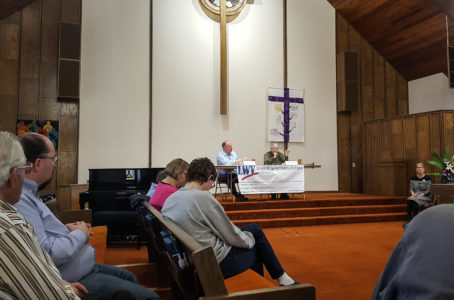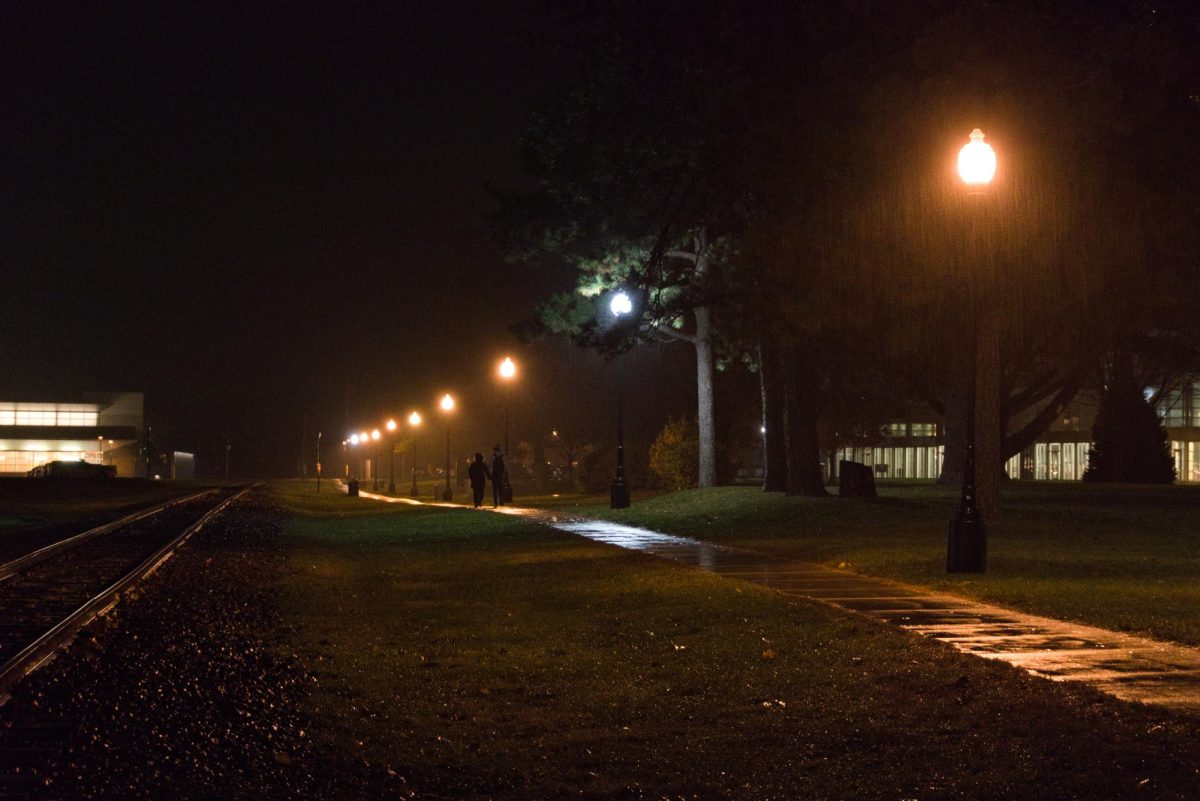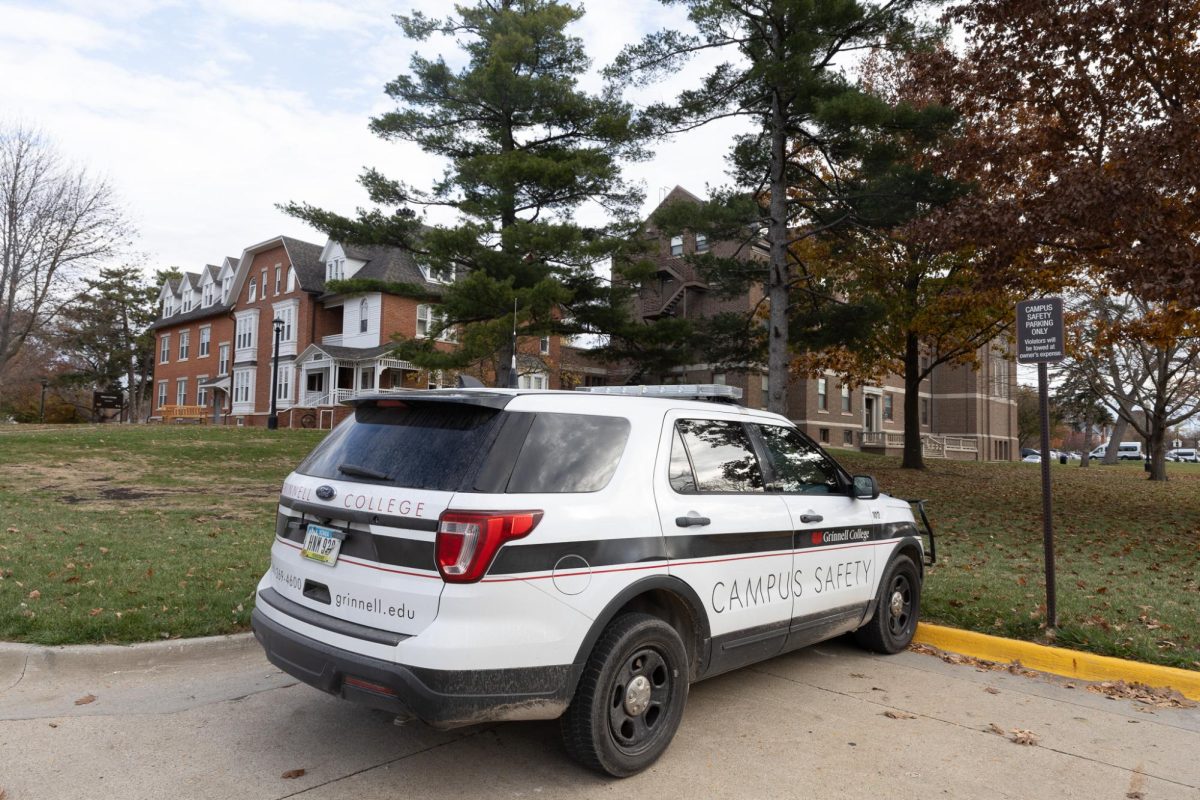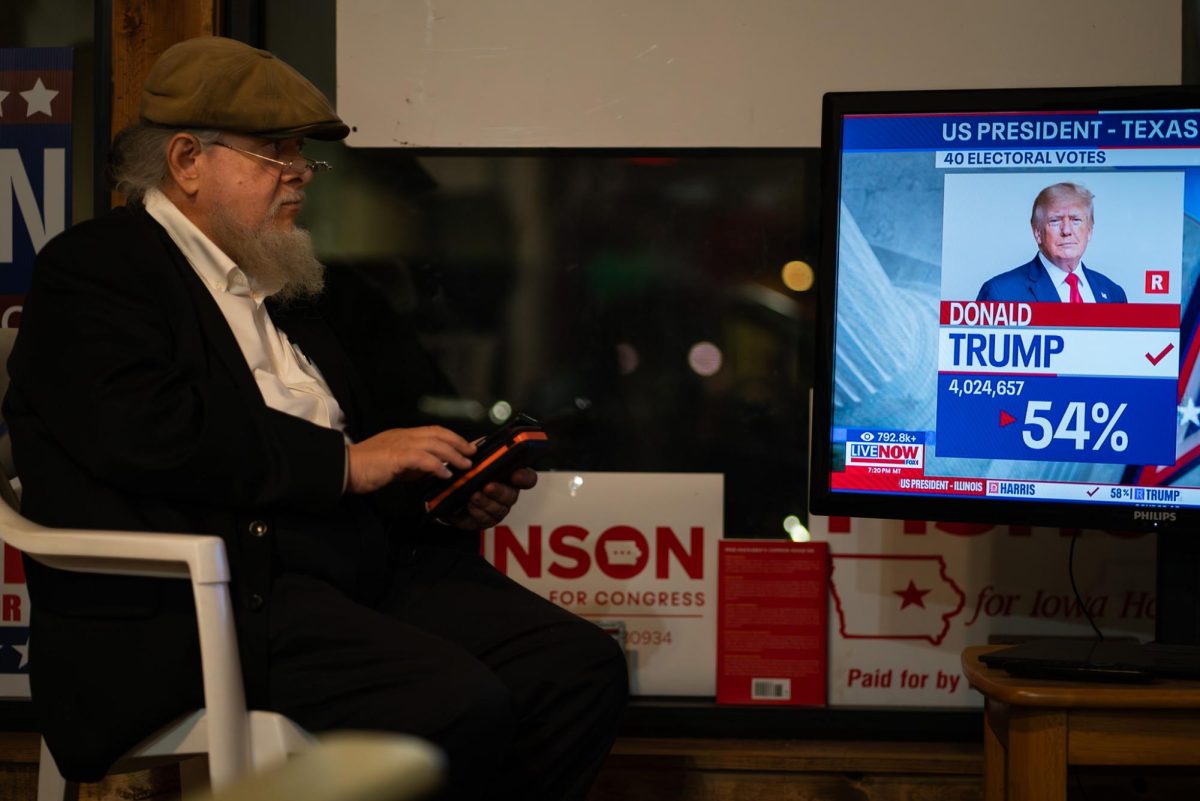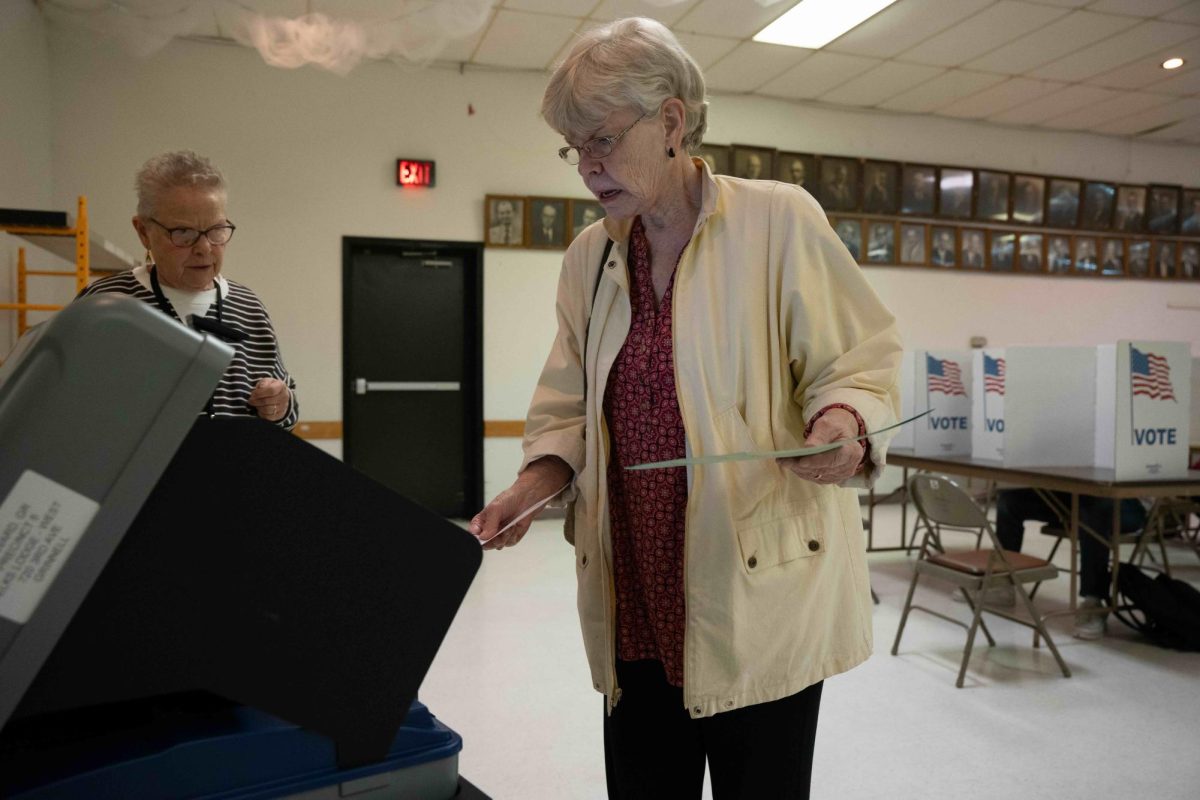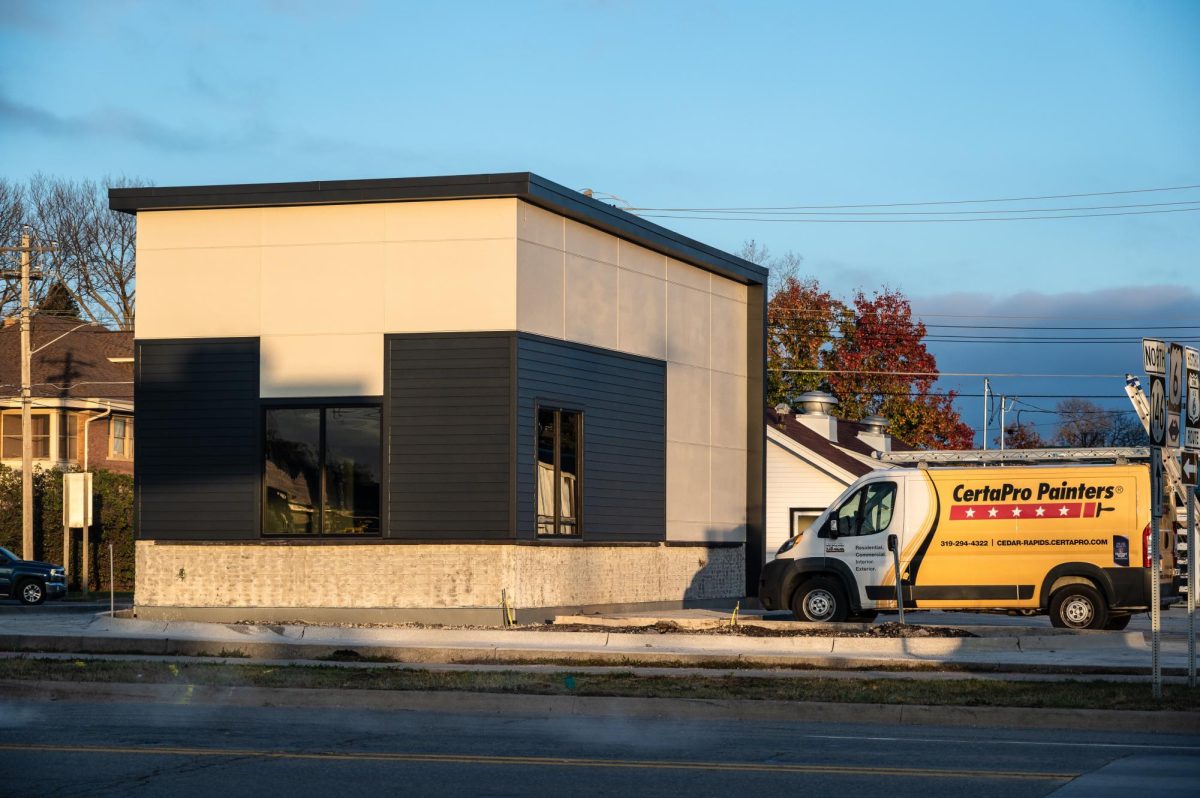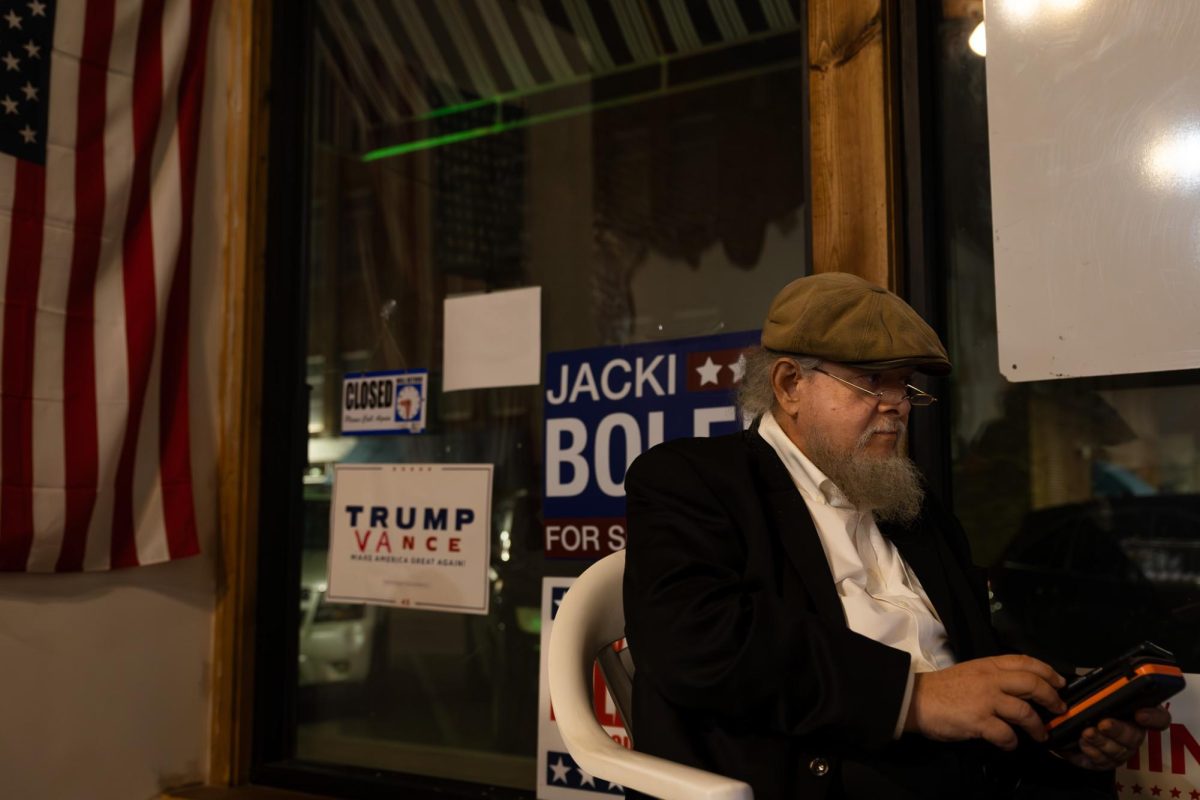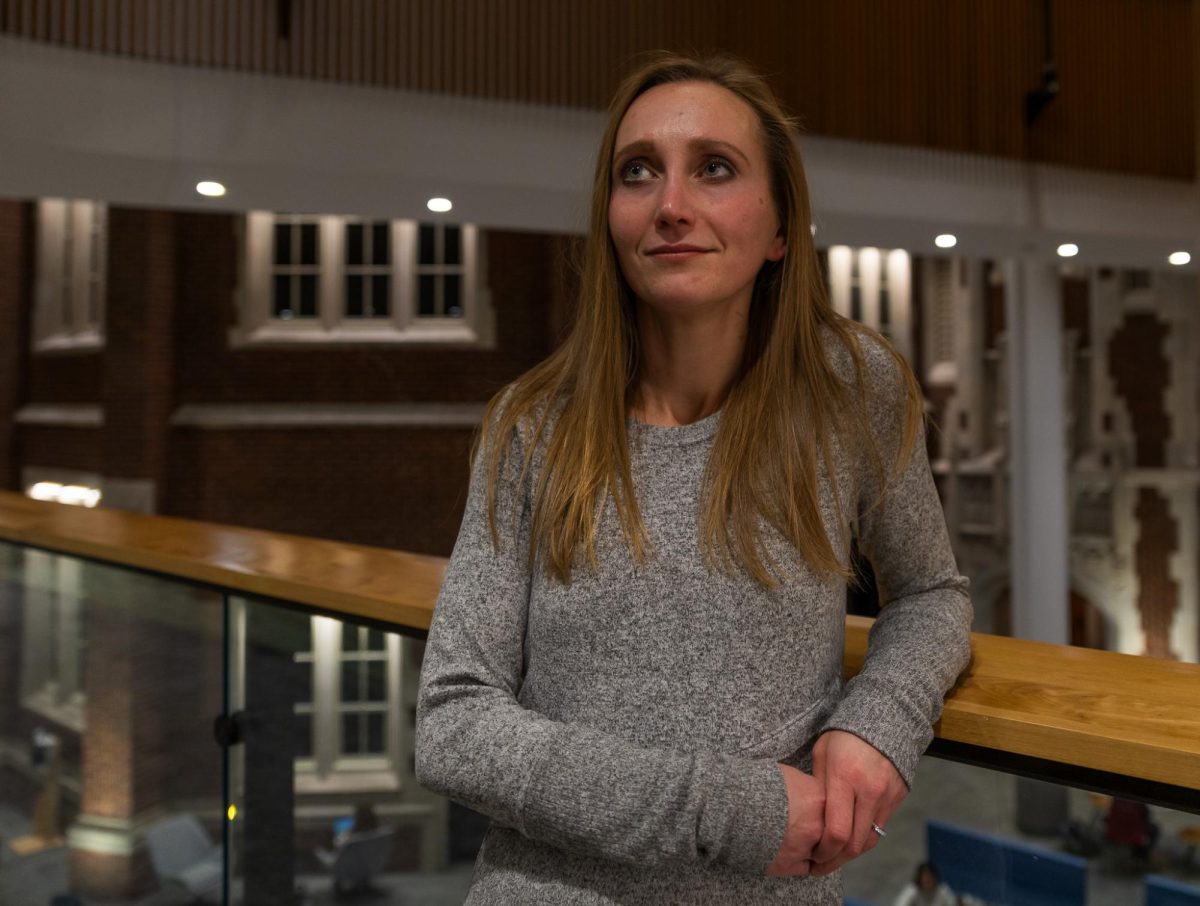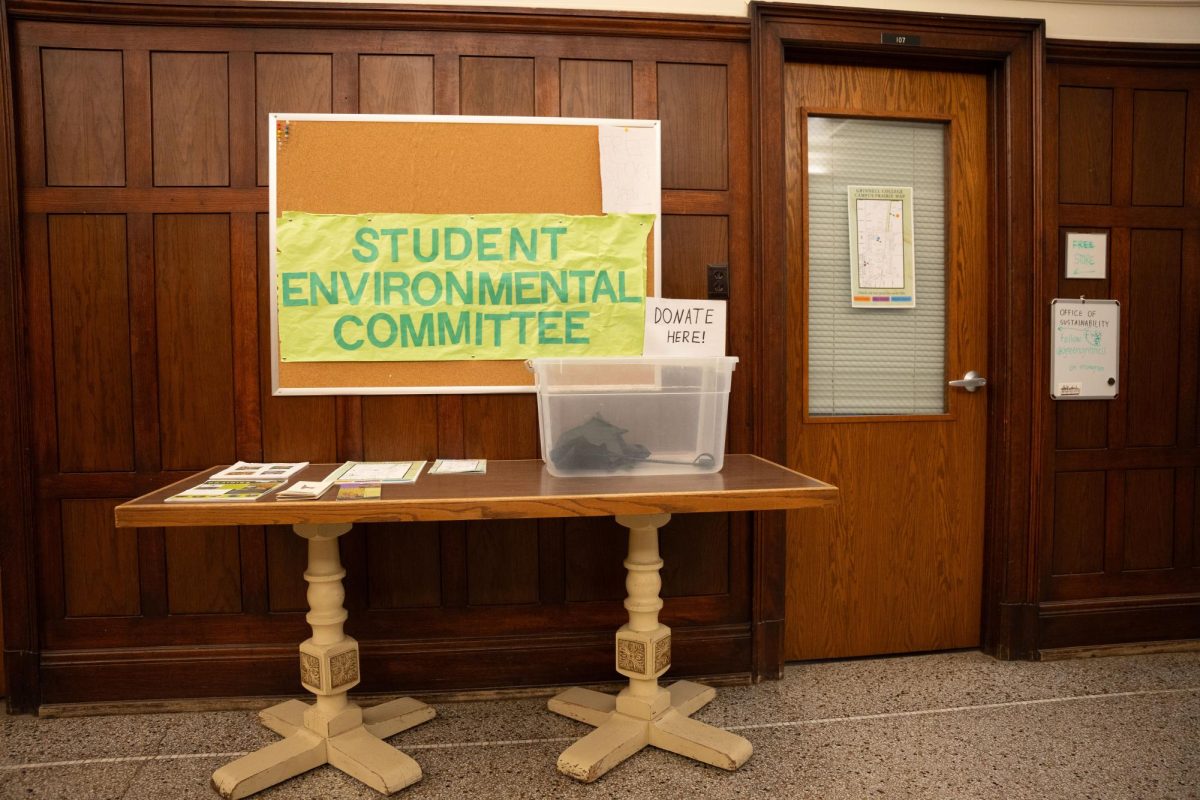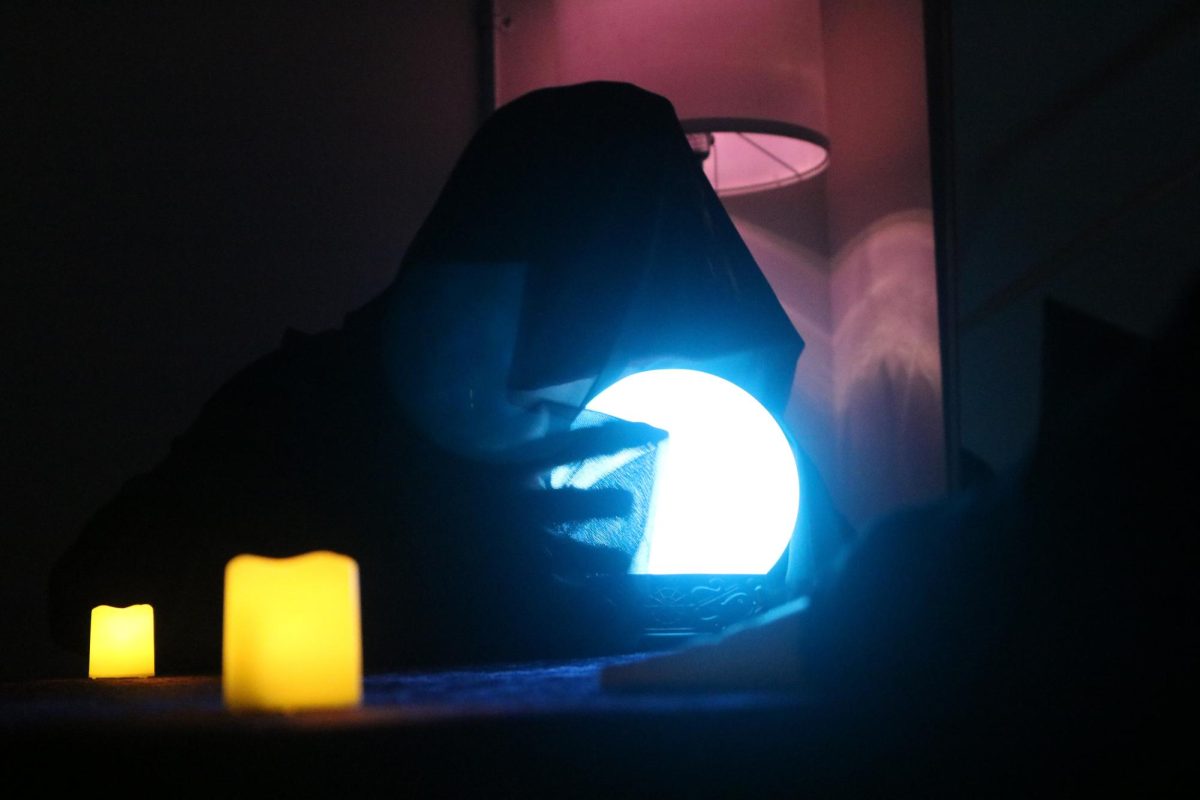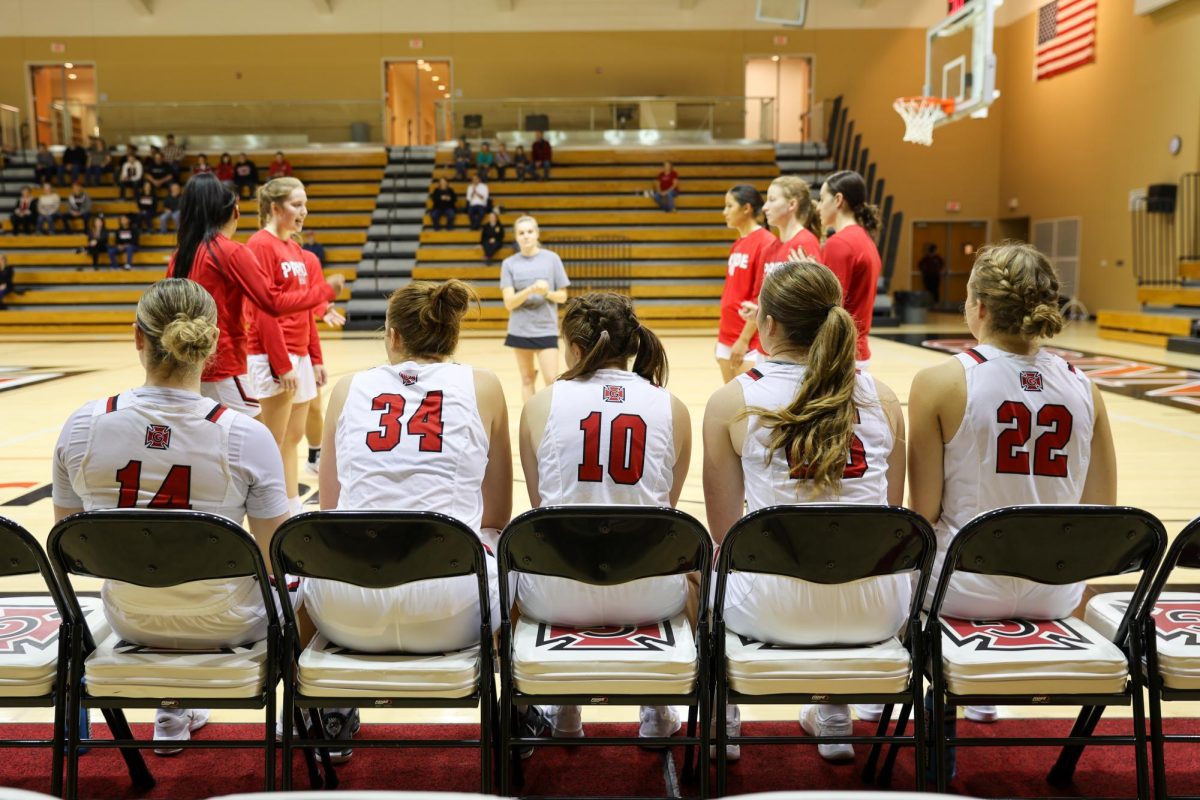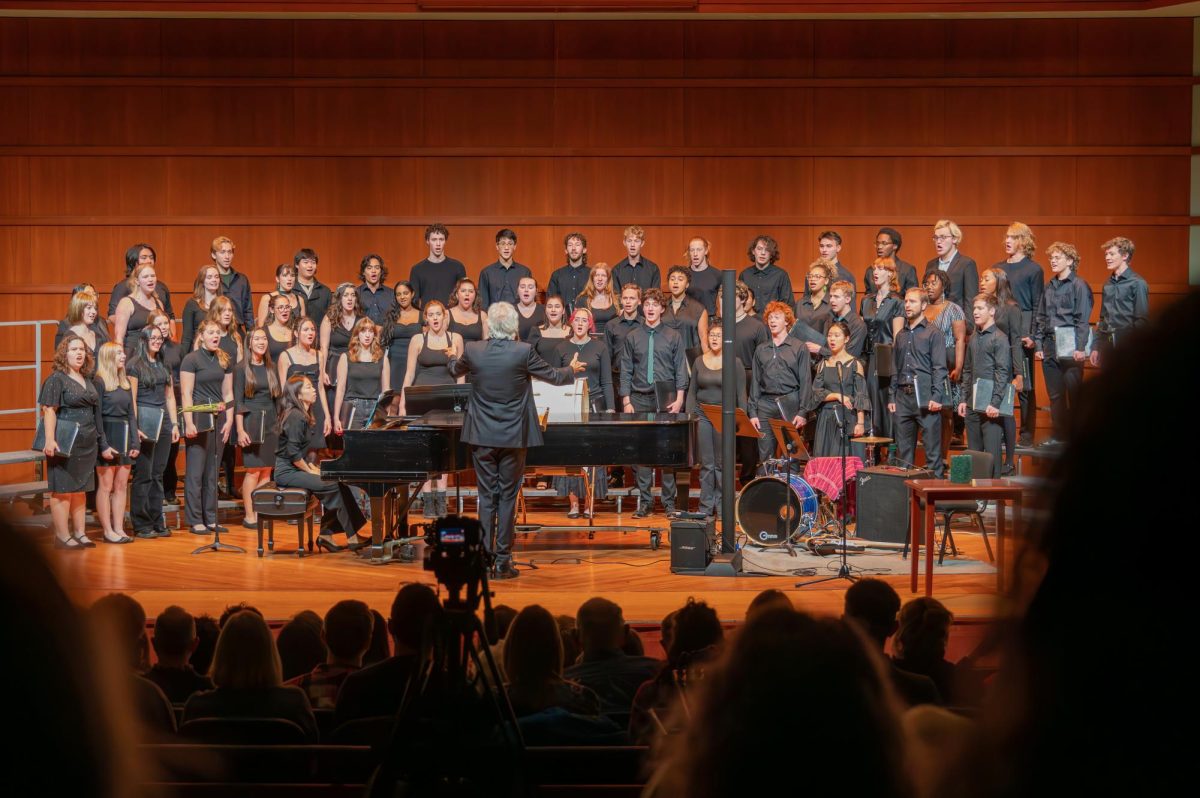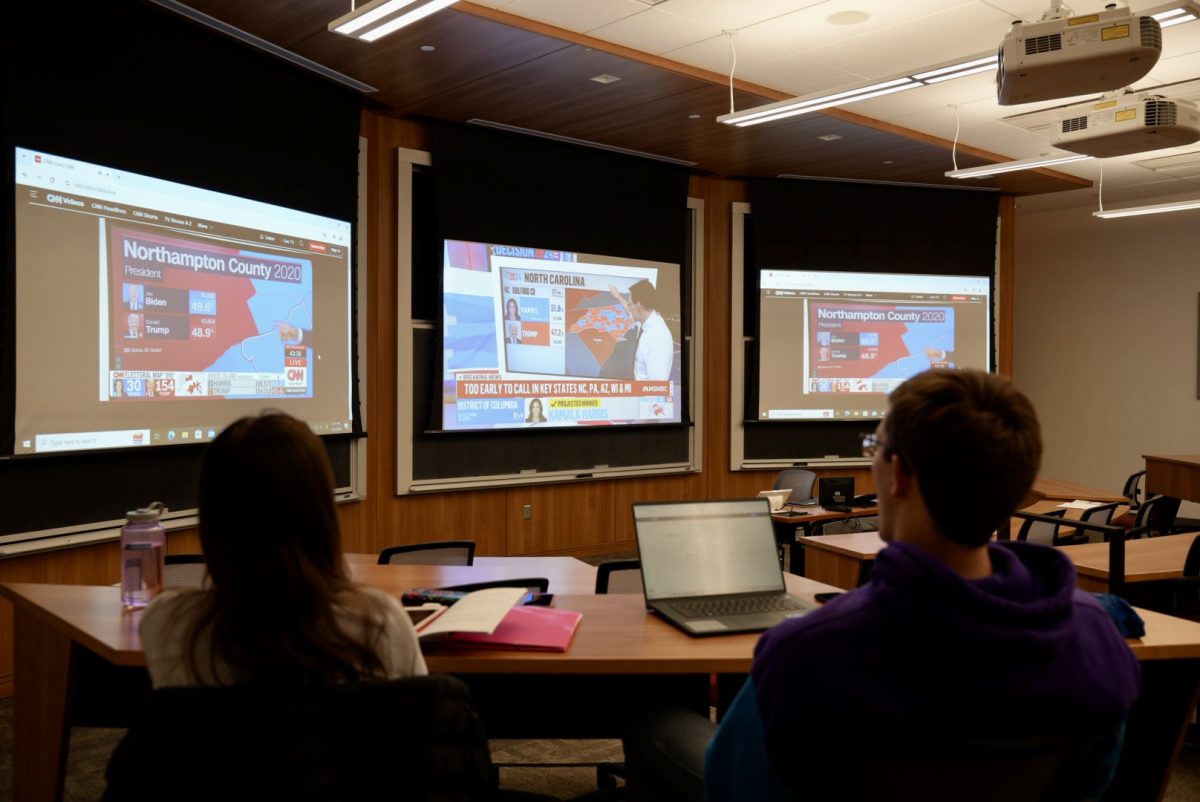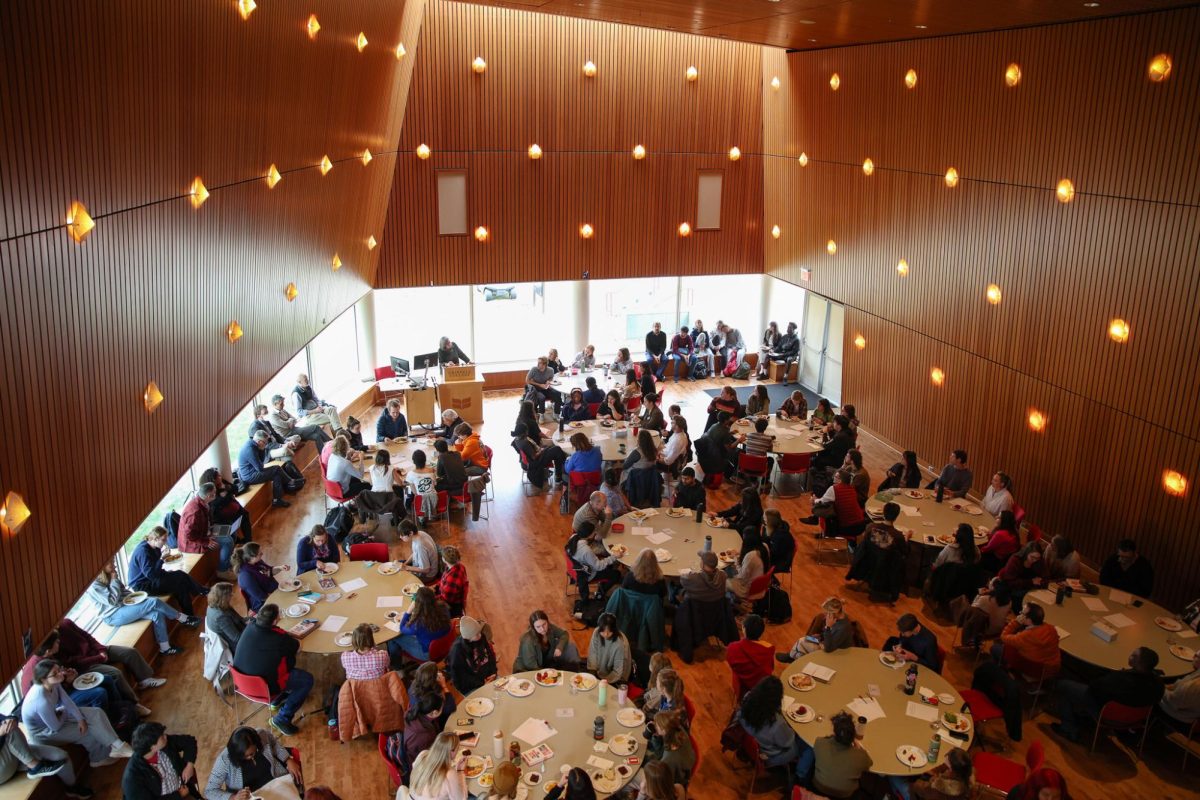Over the weekend, Representative Dave Maxwell and Senator Tim Kapucian held their final Legislative Coffee. The event, organized by the League of Women Voters, drew about 40 community members who asked questions regarding reforms to election procedures, the restoration of felon voting rights, changes in the judicial selection process, campaign finance and more.
One question addressed a bill that was amended in the Senate to include provisions ending general election polls at 8 p.m. instead of 9 p.m., eliminating the ability to hold elections in public spaces, and requiring college students to fill out a form before graduation affirming whether or not they intend to stay in Iowa.
Kapucian expressed concerns about both eliminating public buildings as election spaces and changing election times. “The public buildings — a lot of rural areas that’s what we use to vote in is public buildings, so take that out. And then 9 o’clock. Take [changing the end time] out,” he said. Otherwise he broadly supported the intent of the bill: to clarify absentee ballot procedures.
Another bill that would have begun the process to restore felons’ voting rights was effectively defeated in the Senate last week after it failed to clear a legislative hurdle. It had passed the House 95-2, with Maxwell voting in the majority. Kapucian expressed his support for the measure and his disappointment that it had not gone further, with a few caveats.
“I was looking forward to voting for restoration of felons’ rights,” he said. “Specifically not for someone that murdered, or heinous crimes — no. But people who have paid their price to society and want to come home — our home — and are functioning citizens. I think their rights should be restored.”
One of the most important issues in the 2018 gubernatorial campaign, Medicaid privatization jumped into the spotlight again last week after negotiations broke down between the state and United Healthcare, leaving Medicaid recipients to choose between the two remaining providers. Critics argue this is another indication of the failure of Medicaid privatization, but Maxwell predicted a “fairly smooth transition.” Kapucian also added that his office is happy to help constituents on a case-to-case basis, alleging his office has about a 90% success rate with the cases they take on.
Another question addressed changes to the Iowa judicial selection process. Currently, citizen commissions nominate judicial appointments. Iowa lawyers nominate and vote for half of the commission’s members, while the governor selects the other half. If the proposed changes were to pass, the majority and minority parties of the House and Senate would each select two members to add to the commission, instead of Iowa lawyers, along with the Governor’s eight appointments.
Critics call this plan a politicization of the judicial selection process, while advocates say it makes the process accountable to voters. Kapucian, who voted for the bill in the Senate, argued it would ultimately be fairer for everyone involved, but Maxwell told the audience the bill doesn’t have much of a future in the House.
Other than legislation in the House and Senate, Kapuchian also spoke about campaign finance and putting limits on “dark money” in politics.
“The money that’s spent for campaigns, the money that’s spent that doesn’t even go through a campaign but that’s spent on a candidate’s behalf, is unreal. … I think there needs to be limits. I think there needs to be limits on the amount of time you can campaign. I think there needs to be limits on how much you can spend on a campaign. I really do.”
However, he admitted that he did not know what form those limits would take, nor if they could be successful given the opposition such reforms would face.
Even if this year’s Legislative Coffees have finished, the 2019 legislative session has not. It is scheduled to wrap up on May 3.
